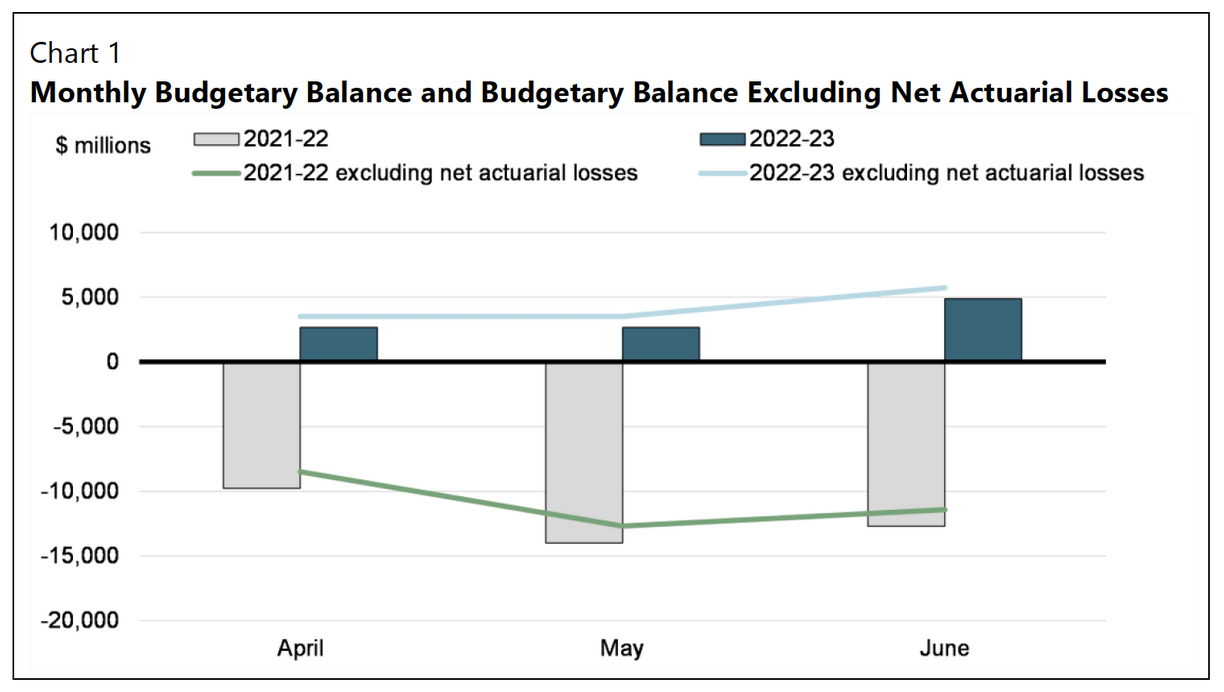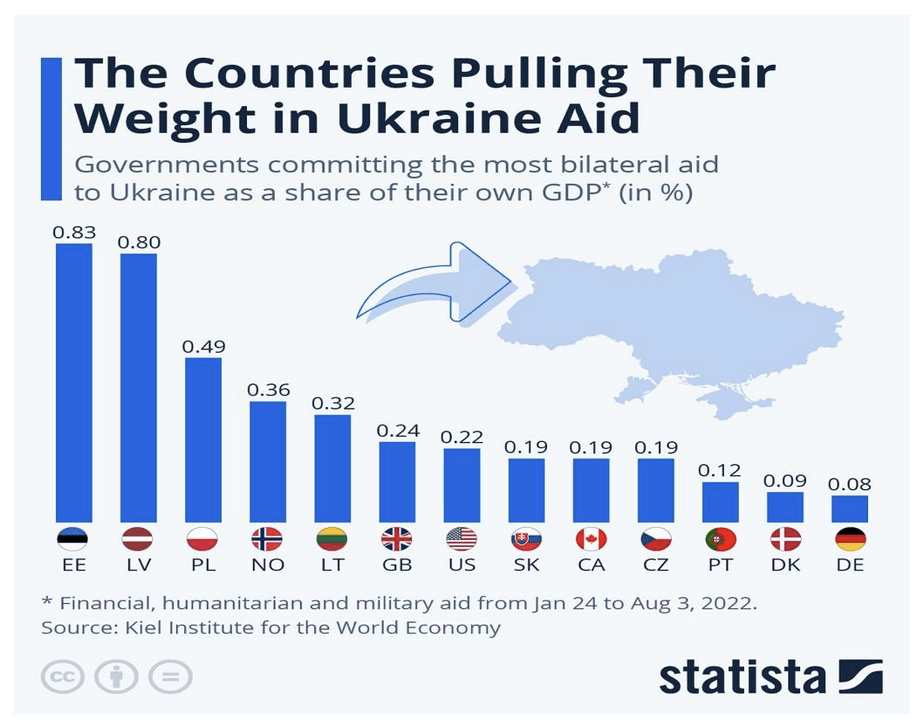Canada Can Afford to Provide More Aid to Ukraine
Kevin Page
September 8, 2022
Canada’s prime minister and federal cabinet ministers met this week in British Columbia to focus on the economy and the affordability issue. We are facing a winter of discontent. Notwithstanding a strong labour market, higher inflation and interest rates are putting a major squeeze on disposable incomes. By comparison, Ukraine is facing a life and death struggle because of the Russian invasion. Canada has provided significant assistance. But we must do more and quickly.
Canadian historian Margaret MacMillan, author of War: How Conflict Shapes Us, makes the case that people make war and war makes us. War is cruel and bloody. It drives change. We are seeing Europe struggle to detach from Russia energy supplies. Change is happening.
NATO Secretary General Jens Stoltenberg made the case in the Financial Times this week that war in Ukraine is entering a critical phase. Higher global inflation rates and political and economic unrest driven largely by the invasion threatens solidarity. The price of the invasion, however, will be much higher if authoritarian regimes believe they can break international laws with impunity.
International organizations, including the Organisation for Economic Cooperation and Development (OECD), the International Monetary Fund (IMF) and World Bank, are supportive of governments, even in the current inflationary environment, to provide targeted time limited fiscal supports to help the poor and vulnerable deal with higher food and energy prices. Some countries, particularly European countries with strong ties to Russian energy, will likely provide temporary supports to businesses on the verge of collapse due to higher input prices and energy shortages. The crisis is real.
Canada has the fiscal largesse to provide both targeted and temporary financial supports to individuals (e.g., like higher GST credits, as proposed by the government) and an immediate boost to Ukrainian assistance.
The latest Department of Finance Fiscal Monitor indicates Canada is running a sizeable budgetary surplus for the first three months of the 2022-23 fiscal year. The budgetary balance for April-to-June 2022 generated a surplus of $10 billion compared to a deficit of $37 billion in 2021 over the same period. Is it possible that Canada could go from a record deficit of $314 billion in 2020-21 (about 14 percent of GDP) to near balance just two years later? Yes.
It is possible because of a strong economic recovery, bolstered by fiscal supports during the COVID crisis, and the removal of those supports with the onset of recovery. High inflation rates in 2022 have acted to boost revenues, resulting in a much lower-than-anticipated budgetary deficit. (Budget 2022 expected the federal deficit to be $53 billion in 2022-23, down from $114 billion in 2021-22.)

Should the federal government assume these much higher-than-anticipated revenues will continue? No. The global economic outlook is deteriorating. Central banks around the world are raising policy interest rates. This will slow growth and reduce demand pressures on inflation.
How should the government use the temporary influx of revenues? Should we reduce debt? Should we help Canadians and Ukrainians? I vote the latter. To be frank, the world is facing a crisis.
Canada can and should increase humanitarian assistance to Ukraine. We could double, triple or quadruple humanitarian assistance — now totalling a little over $300 million according to Government of Canada sources.
Canada, like many other countries, has provided multifaceted support to Ukraine since the 2014 Russian invasion and occupation of Crimea and Sevastopol and the more recent invasion in 2022. This support includes military, humanitarian and immigration assistance as well as targeted sanctions. Including loans, total financial assistance is likely in the range of $2 billion, with additional military and humanitarian commitments.
Is Canada pulling its weight in Ukraine aid? According to the Kiel Institute for the World Economy, an independent German think tank, we are making significant contributions but we are on the light side of the distribution. Kiel ranks Canada 9th among donor countries in total commitments and 11th in humanitarian assistance (percentage of GDP basis). By comparison, we rank 3rd on financial commitments and 14th on military commitments. Canada can and should increase humanitarian assistance to Ukraine. We could double, triple or quadruple humanitarian assistance — now totalling a little over $300 million according to Government of Canada sources.

Global leaders met in Switzerland in July to begin the conversation of a Ukraine recovery. The next global meeting on reconstruction is set for Germany at the end of October. The future of democracy and global order is on the table. Canada will be there.
In the meantime, there is much more we can do to help Ukrainian people manage a difficult winter.
After a mass migration out of Ukraine, may Ukrainians want to return home. Cities and homes are devastated. People need a place to live. As widely reported and witnessed, the Russian military has targeted civilian institutions. Children need places to go to school. Safe shelters must be built. Facilities and equipment are required to provide medical treatment. With the destruction and deterioration of energy infrastructure, generators and sleeping bags are required to keep people warm.
More money and timely intervention on Ukrainian land for Ukrainian people is required. The government of Canada should not wait until the fall economic and fiscal update to make this announcement. We must act now.
Kevin Page is the President of the Institute of Fiscal Studies and Democracy at the University of Ottawa, former Parliamentary Budget Officer and a contributing writer for Policy Magazine.
